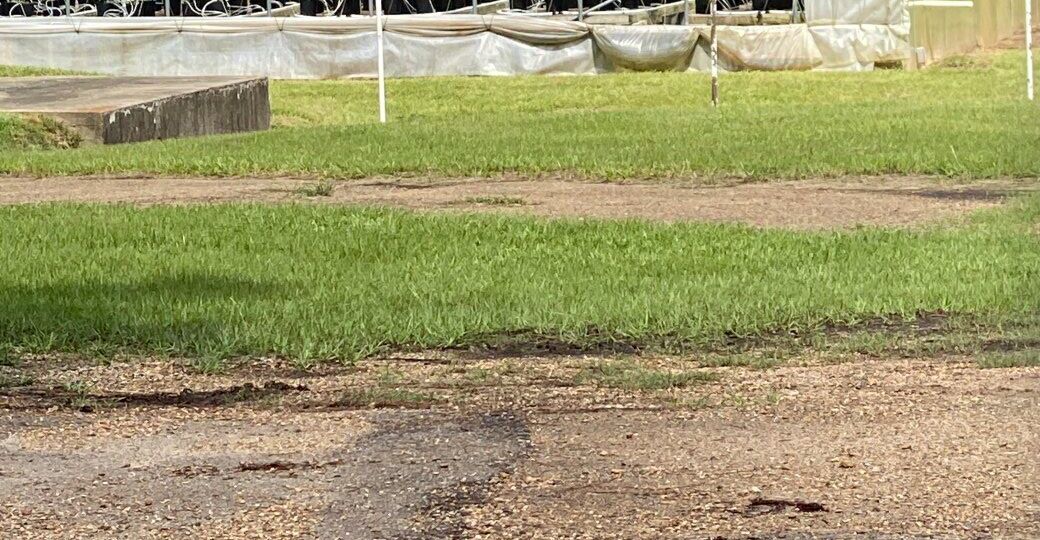
The largest medical marijuana grower licensed so far in Mississippi’s fledgling program had to destroy about $1 million worth of plants, halt some operations and make structural improvements at one of its sites, state Health Department officials said Thursday.
But largely, the department said it is working with new marijuana businesses — all of which have some “compliance” issues — as the program gets going and not dropping the regulatory hammer laid out in state rules or calling law enforcement on them.
A Mississippi Today article and photos in early October showed that Mockingbird Cannabis LLC did not follow state growing and security regulations. The department’s response at that time — to write Mockingbird a letter listing “corrective actions” and to not answer any questions — had competitor growers crying foul. They said Mockingbird was allowed to grow and harvest a crop improperly and on the cheap in plastic- and cloth-covered greenhouses with lax security that would allow them to beat others to market as the program gets rolling.
Mockingbird had been growing plants without listing them in the state’s “seed to sale” tracking system, at a secondary site 12 miles from its main operations on Springridge Road near Raymond. Other cultivators said they were told they had to limit cultivation to one site and that they were not allowed to use greenhouses.
But at a Thursday online press conference, Kris Jones Adcock, Mississippi Medical Cannabis Program director for the Health Department, said Mockingbird has since faced more repercussions.
“There is an order in place where they have some halt on operations and some impact on their operations and some capital improvements they have to do to satisfy that corrective action,” Adcock said. “They also had to destroy a number of plants in their inventory … I don’t know the exact number, there was upwards of $1 million of inventory destroyed — right at about 5,000 plants.”
A Mockingbird official had said earlier this month there were about 20,000 plants growing at the site.
Mockingbird co-founder Marcy Croft declined to answer questions about the department’s actions on Thursday, but sent a written statement that it pledges to “continue to fully cooperate with the Mississippi Department of Health, our fellow growers, dispensaries owners and healthcare providers to ensure a robust and effective market in our state.”
READ MORE: Mississippi medical marijuana regulation ‘stuck in constipation mode’
Despite having 47 cultivators licensed and already growing tens of thousands of plants, the Health Department has reported it has only three staffers and no investigators and that the program is in a “provisional” phase. Nevertheless, State Health Officer Dr. Dan Edney on Thursday said he’s reasonably sure little marijuana is being diverted to the black market from the state medical program and that preventing diversion is a top priority.
“We are doing that to the best of our ability,” Edney said. “We are not going to be able to get that to zero, but we are doing as best we can under the regulatory authority given to us … and as we are bringing on more staff next month it will be easier.”


The department, which didn’t want the task of overseeing the state’s medical marijuana program to start with, has struggled with hiring cannabis program workers, Edney reported to the Board of Health recently. On Thursday, officials said they expect to have nine more staffers hired by the end of November and to be contracting private companies to help with compliance. The state Legislature, when it created the medical marijuana program, put the Health Department and Department of Revenue on a tight, 120-day schedule to get the program up and running. DOR is licensing and regulating dispensaries and sales.
Adcock estimated marijuana products could be for sale to patients by early in the new year.
Adcock said that as of Thursday the department had “provisionally” licensed:
- 117 practitioners (prescribing doctors and nurses)
- 491 cannabis industry workers
Edney said the Health Department has done “yeoman’s work” in standing up a new program in such a short amount of time. He said the “key tenets” of the program will be ensuring the safety of the public and “that we reduce any opportunity of diversion that we possibly can.”
“Make no mistake the agency has been regulating this industry from day one and will continue to do so as we go forward,” Edney said.


